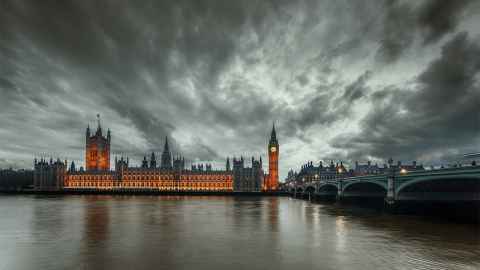The most important UK election since 1979
10 December 2019
Opinion: UK voters have a chance to stop the new age of hostility and belligerence in the country's most significant election in 40 years, writes Neal Curtis.

This year the drama inside the British parliament has been something of a political soap opera. We have looked on as the story of the UK’s relationship with the EU has taken various twists and turns. You’d think we’d be bored of this rather tired plotline by now, but it keeps throwing up intrigue, not least Boris Johnson’s recent illegal effort to prorogue parliament in order to avoid scrutiny of his Brexit Bill. This in turn brought about the added spectacle of a third general election in four years.
As British voters cast their ballots on December 12 they will be doing so in the most important election since 1979, but this is not because the ramifications of a possible Brexit have such profound consequences. Rather, it is because this is possibly the last chance to stop the project that started with Margaret Thatcher’s election in 1979 and set the UK on its current course of dismantling the last pieces of welfarism and any remnants of the post-war consensus that still exist.
It is well-known that Thatcher’s arrival in No. 10 signalled the beginning of the economic doctrine known as neo-liberalism, a doctrine in turn supported by Ronald Reagan in the US. This is defined by the dual process of privatisation and deregulation; the latter having a profound effect on the banking sector and what is known as the financialisation of the economy (a shift from industry to the service sector). Deregulation became so commonplace and extensive that when the global economy’s reliance on debt ballooned to dangerous levels no one was watching.
What American economist Ben Bernanke called “the Great Moderation” was supposed to mean that the days of boom and bust had gone, but in 2008 the biggest crash was yet to come and the economy was only saved by huge amounts of public money being used to bail out private banks.
This should have been the end for a doctrine that had by that time become unquestionable dogma, but it lived on in zombie form for another eight years. As a consequence, one of the greatest political confidence tricks of all time was played on the working people of many countries when the excuse there was no money was used to support the imposition of severe austerity measures. These measures brought further degradation of public services and the welfare state which had been the chief aim of the neo-liberal dogma from the very beginning.
Throughout this time, the political class increased their diversionary tactics. From their perspective, neoliberalism was a complete success. It had vastly increased their ownership of assets, expanded their wealth, and boosted their political power. Hence, they flooded public discourse with complaints that the ills of society were all the fault of foreigners, immigrants and, in the UK in particular, the technocrats in Brussels.
However, it was not until the arrival of Donald Trump that the zombie of neoliberalism morphed into an even more unpleasant monster: an isolationist, xenophobic nationalism. This was vociferously grasped by the likes of Boris Johnson and Jacob Rees-Mogg and weaponised to seize control of the Conservative Party that had already drifted to the hard-right in an attempt to stem the influence of Nigel Farage.
The upcoming UK election is thus a referendum on this shift in direction. If Johnson is successful he will no doubt continue to dismantle public services and strangle public spending. Despite protestations to the contrary, the man has a track record of lying and has clearly adopted the strategy of disinformation that worked so well for Trump, but has been long practised by Vladimir Putin’s grey cardinal, Vladislav Surkov. If successful, Johnson will pursue a neo-nationalism coupled to the sort of naked, competitive capitalism not seen since the 1920s, and we all know where that got us.
Against him stands Jeremy Corbyn, a man perpetually vilified by a right-wing press in a campaign of propaganda perhaps unmatched in modern times. What he offers, however, is what many mainstream economists say is necessary: a period of public investment that will boost the UK economy, and with spending plans that still remain modest by international standards.
In response to a manifesto containing a fully costed set of policies that an austerity-riven and divided country so clearly needs, the British population are continually told that Corbyn is useless, and yet he has seen off two Conservative Prime Ministers, halted a catastrophic No Deal, and forced a third PM into an early election he didn’t want.
The British people may indeed get a chance to rebuild many years into the future after the new age of hostility and belligerence has run its course, but this is a chance to stop it before it is fully unleashed. This is why this election is as important as the one in 1945 and the most significant since 1979.
Dr Neal Curtis is Associate Professor of Media and Communication in the Faculty of Arts.
This article reflects the opinion of the author and not necessarily the views of the University of Auckland.
Used with permission from Newsroom The most important UK election since 1979 10 December 2019.
Media queries
Alison Sims | Research Communications Editor
DDI 09 923 4953
Mob 021 249 0089
Email alison.sims@auckland.ac.nz